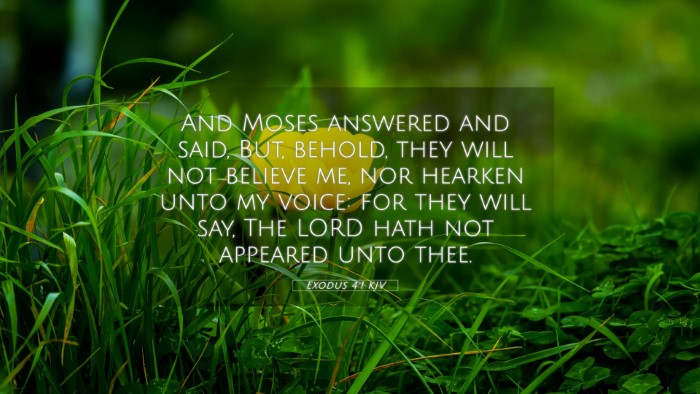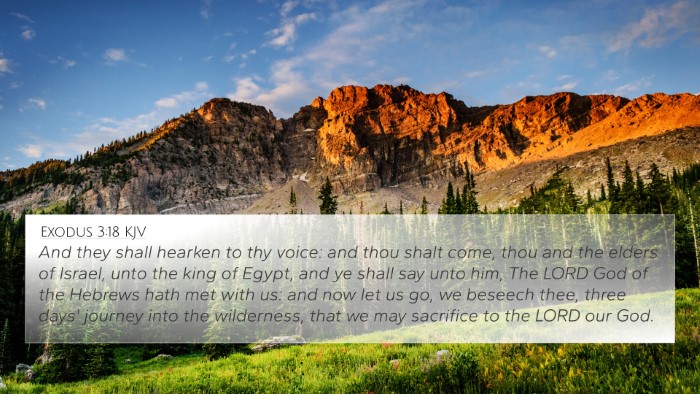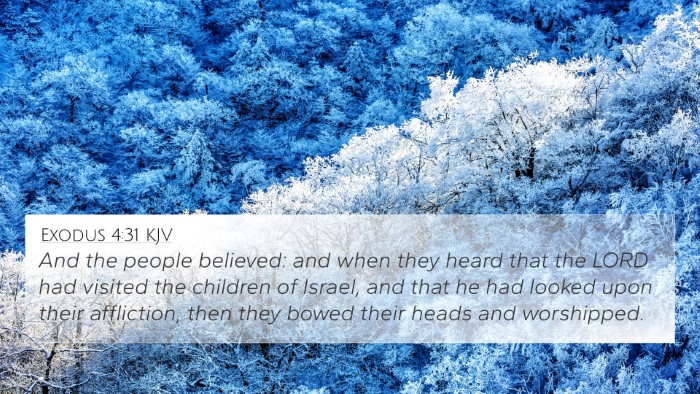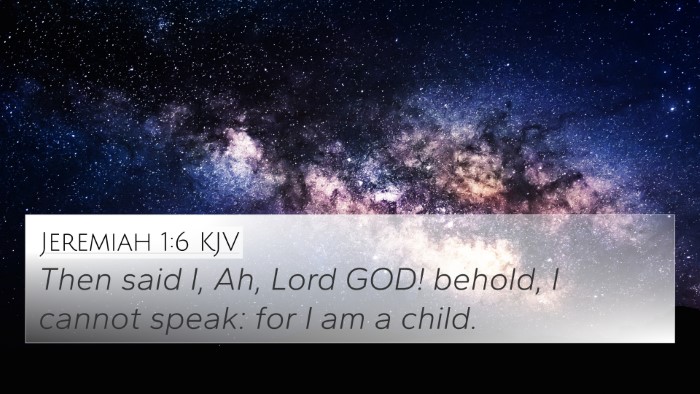Understanding Exodus 4:1
Exodus 4:1 reads: "Then Moses answered and said, 'But suppose they will not believe me or listen to my voice; suppose they say, “The Lord has not appeared to you.”'" This verse marks a critical moment in the narrative of Moses' calling and highlights themes of doubt, faith, and God's assurance in the face of human skepticism.
Context and Significance
The context of this verse is significant as it illustrates Moses’ hesitations regarding his divine commission. Upon being chosen by God to lead the Israelites out of Egypt, Moses expresses his concerns about the Israelites’ potential disbelief. This moment reflects the natural human tendency to doubt and seeks confirmation of one's calling.
Key Themes
- Doubt and Assurance: Moses’ doubt serves as a precursor to God’s assurances and miracles that will subsequently be revealed to strengthen his position.
- Divine Calling: This verse encapsulates the internal struggle faced during divine assignments.
- Communication with God: The dialogue between Moses and God represents a relational aspect of faith.
Bible Cross-References
Exodus 4:1 can be deeply understood through a comparative Bible verse analysis. Below are related verses that create thematic connections:
- Exodus 3:12: "He said, 'I will certainly be with you...'" Here, God promises His presence, addressing Moses' fears.
- Exodus 3:18: "Then they will heed your voice..." God reassures Moses that his words will be listened to by the elders of Israel.
- John 20:29: "Blessed are those who have not seen and yet have believed." This ties to the theme of faith without physical evidence.
- Judges 6:15-16: Gideon expresses similar doubts, showing a pattern of divine reassurance in scripture.
- 1 Timothy 1:12: Paul expresses gratitude for being entrusted with the ministry, reflecting confidence in God's calling despite human inadequacy.
- 2 Corinthians 5:7: "For we walk by faith, not by sight," emphasizing the continuity of faith and belief amidst uncertainty.
- Jeremiah 1:6-8: Jeremiah’s initial reluctance mirrors Moses’ doubts, reinforcing that God equips those He calls.
Insights from Commentaries
Matthew Henry remarks that Moses’ objections are rooted in fear and that God’s patience with Moses' doubts illustrates His mercy. Despite Moses’ lack of confidence, God’s unwavering support is foundational for overcoming obstacles in fulfilling one’s calling.
Albert Barnes asserts that Moses’ concern represents a legitimate doubt, which many believers face. He highlights that God often provides signs to affirm His chosen servants, indicating a divine understanding of human frailty.
Adam Clarke discusses the cultural context of Moses’ concerns, suggesting that the expectations of typical leaders might have influenced his feelings of inadequacy. Moses’ call underscores that God often chooses the unlikely to fulfill significant roles in His plan.
Conclusion
This analysis of Exodus 4:1 through the lens of doubt and divine assurance offers deep insights into the human experience of faith. By cross-referencing related scripture, one can observe how themes of doubt, affirmation, and divine communication are woven throughout the Bible, guiding believers in understanding their own journeys.
Utilizing Cross-Referencing Tools
For those interested in exploring the connections between Bible verses further, tools for Bible cross-referencing such as concordances and specific Bible reference resources can enhance understanding. Knowing how to use a Bible cross-reference system enables readers to discover thematic links across the Old and New Testament, enriching the study of scriptures.
Final Thoughts
Exodus 4:1 challenges readers to confront their doubts and remember that God equips those He calls. The use of cross-referencing can uncover layers of meaning and inter-Biblical dialogue that support the understanding of one's faith journey. Whether it’s finding cross-references for a specific verse or identifying connections between various scriptures, each exploration can lead to a deeper appreciation of biblical themes and God’s enduring promises.









